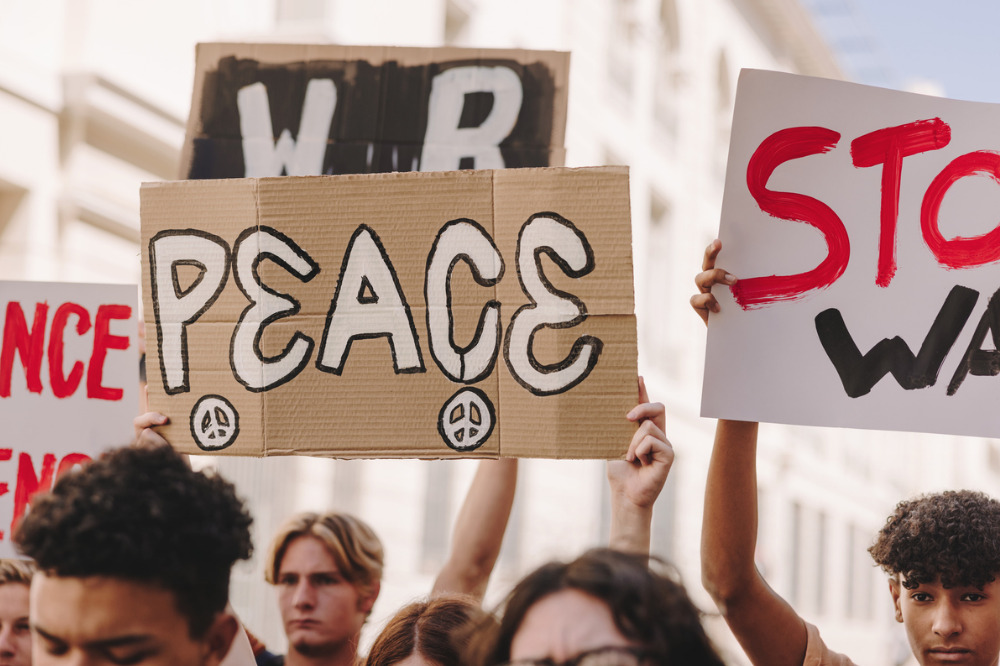
In recent weeks, scores of Australian students have been holding pro-peace rallies, calling for a ceasefire in the Israel-Hamas war, which has killed more than 20,000 people and displaced more than 2 million since 7 October 2023.
Following a rally by school students in Sydney’s CBD on 24 November, the NSW Government said the action “was not a reason to be wagging” and warned that that students attending the rally would be marked absent.
“One of the most important ways you can change the world is get an education,” Deputy NSW Premier and Education Minister, Prue Car said. “You will be marked absent if you go to the protest, it’s not a reason to be wagging school today. You need to go to school.”
However, Greens senator Mehreen Faruqi said she was “proud” of young people in Australia, after a similar school strike was held in Melbourne day before the Sydney rally.
“I am so honoured to be among you, you give me hope for the future. You inspire me every single day, you will know what is right and what is wrong, and you are on the right side of history,” she told the students at the rally.
“Your education is working really well because it has brought you out here today. It has taught you how to think for yourself. It has taught you the difference between right and wrong.”
Read more: How teachers can help reverse the normalisation of war
As recently as last week, students blocked streets in several Australian cities in support of Palestine, suggesting for that as long as the war in Gaza drags on, so will the pro-peace rallies that are being held by students across Australia.
Teachers for Peace is one organisation that has been promoting the value of peace education in Australian schools.
The organisation’s director, Elise West said efforts to discourage pro-peace rallies ignores the “natural and positive” response of young people who are passionate about doing their part to make the world a more peaceful place.
“No person anywhere can be unmoved by the human suffering we’re witnessing in Palestine and Israel,” West told The Educator.
“Having witnessed suffering, wanting to take action to stop it is a natural and positive response that should especially be encouraged in children and young people.”
West said seeing the humanity of others, treating all life as equal, rejecting the use of violence, acting in accordance with conscience are all good things, yet efforts by some teachers and students to show solidarity with victims of war have been criticised, and have been called inflammatory and divisive.
“The Victorian Education Minister has ordered students not to attend rallies calling for a ceasefire in Palestine, and the NSW Premier Chris Minns has told high school students that civil action is meaningless: saying that ‘if you want to change the world, go and get an education’,” she said.
“The overall message seems to ultimately be – don’t talk about this war. But conversation about this conflict should happen at school, where there are clear standards about respectful exchanges of ideas, and no tolerance for prejudice, racism, or discrimination.”
West said this is further reinforced by the fact that young people are talking about the war anyway, and there are very few public models for informed and humanising discussion.
“More generally, it’s vital that teachers are encouraged to wrestle with education’s part in the normalisation of war,” she said.
“The way that past wars are taught, and the way that current wars are interpreted at school, shapes society’s relationship to armed conflict.”
West said the normalisation of war happens when societies valorise military adventurism, diminish the costs and consequences of war, or dehumanise war’s victims.
“And it happens when something as terrible and abnormal as war is presented as being not only a legitimate means to solve conflict, but as morally right and necessary.”


